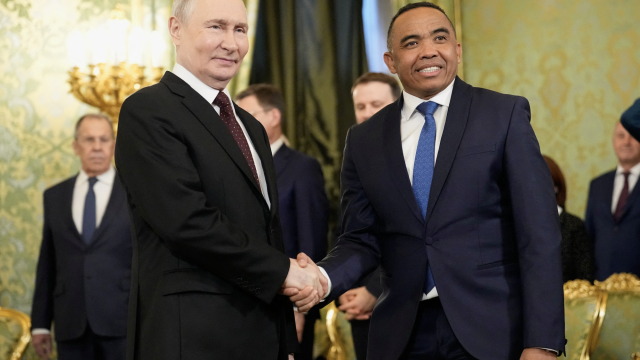More than 100 residents of the Urals city of Chelyabinsk sought medical help Thursday after a toxic spill of bromine — a substance used, according to Soviet urban legend, to suppress the sex drive of soldiers.
Toxic fumes covered much of Chelyabinsk, a city of 1.1 million, as well as the nearby town of Kopeisk after 40 to 50 liters of bromine spilled out of broken glass jars at the Chelyabinsk train station, news reports said.
The jars broke when the freight railcar carrying them was rolled down a rail hump, said the Investigative Committee, which opened a case over transportation safety violations.
Photos from the site showed a thick plume of orange smoke stretching several dozen meters over the train station.
The railcar was swiftly moved to Kopeisk.
City officials said the spill could not cause serious harm, but nevertheless dispatched numerous cars with loudspeakers into the streets, urging people to stay indoors, Gazeta.ru reported. Festivities for the new school year, which started Thursday, were canceled.
The country's chief sanitary doctor, Gennady Onishchenko, later said 36 people had suffered minor bromine poisoning, RIA-Novosti reported. But the Prosecutor General's Office said later that up to 113 had sought medical help over the spill, and 33 of them were hospitalized with unspecified symptoms.
Bromine, a potentially lethal substance, is widely used in organic chemistry. It was applied as a sedative in 20th-century medicine, and in Soviet times, an urban legend made the rounds that military doctors added it to conscripts' food to decrease their sexual desire.
Although the legend is not grounded in fact, it nevertheless sparked a flurry of sarcastic Twitter comments Thursday. One user, Simwhite, warned Chelyabinsk residents that they now face "a year without sex."
A Message from The Moscow Times:
Dear readers,
We are facing unprecedented challenges. Russia's Prosecutor General's Office has designated The Moscow Times as an "undesirable" organization, criminalizing our work and putting our staff at risk of prosecution. This follows our earlier unjust labeling as a "foreign agent."
These actions are direct attempts to silence independent journalism in Russia. The authorities claim our work "discredits the decisions of the Russian leadership." We see things differently: we strive to provide accurate, unbiased reporting on Russia.
We, the journalists of The Moscow Times, refuse to be silenced. But to continue our work, we need your help.
Your support, no matter how small, makes a world of difference. If you can, please support us monthly starting from just $2. It's quick to set up, and every contribution makes a significant impact.
By supporting The Moscow Times, you're defending open, independent journalism in the face of repression. Thank you for standing with us.
Remind me later.






